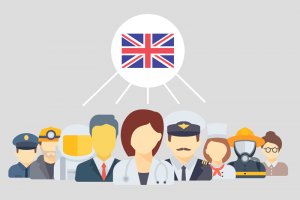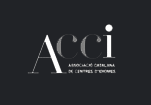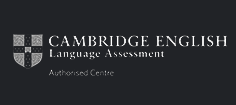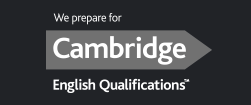Notícies
-
OFERTA cursos intensius ESTIU'24
10€ DTE. en inscripció i pagament fraccionat!
-
CASALS D'ESTIU 2024
Inscripcions obertes per a CAN SALA i HORTUS!
-
2 alumnes CS a la final d’oratòria 4Voices
El concurs aborda els desafiaments i inquietuds del món digital
-
Guanya un viatge a Cambridge
Sorteig entre qui superi l'examen oficial B2 o C1 al juny/juliol
January article
Dimecres, 2 de Gener del 2019“Tailor-made business English” by Emma Hearle
In today's global economy, language learners want not only the skills to read, write, listen to and speak English fluently, they also want to be able to communicate in a way which will be recognised and appreciated by their counterparts in the international arena as well as being able to perform better in their individual roles. They want their English to be targeted to their profession and often have specific needs and look for a very practical application of their newly learned language skills.
At Cambridge School we have teachers who have taught a wide variety of professionals whose needs are for very particular fields. Both my colleagues and I have had students needing English for work as singers, journalists, models, casino croupiers, pilots, football players, police officers, lawyers and even coffee-tasters!
Bilingualism In The Sky
There are some 100,000 commercial flights each day in the world, which means that literally millions of interactions take place between pilots and air traffic controllers, very often in a foreign language since English is the international language of civil aviation. This entails a special form of bilingualism as it is very domain-specific and has to be optimal at all times. Miscommunication has been a factor in many aviation accidents. For example the Tenerife accident in 1977 when 583 died or the 1996 Charkhi Dadri mid-air collision where 349 people died. The International Civil Aviation Organization has acknowledged that communications, or the lack thereof, has been shown by many accident investigations to play a significant role
Grammar Police
Given the new requirement from the Mossos d'Esquadra that English is now necessary for many roles in the force, we teach a lot of officers who have to know specific English for law enforcement. Police officers are the hands of the law, and their duty is to serve and protect the people. They will come across people who only speak English, typically tourists or retirees and sometimes, getting information is the key and will help to solve a crime more quickly as there may not always be time to wait for an interpreter.
The Language of Pain
Pain is hard to talk about and hard to understand. Communication problems make things trickier for doctors, patients, and families. Medical staff have to be able to ask patients to describe the type of pain they are suffering from and where it is, instead of, ‘Does it hurt here?’ or ‘Does it hurt all over.’ Is it just pain when you press on it? Is it muscle pain, is it joint pain?
Another block to pain talk is not having the words to describe it. Is it soreness, is it stabbing, throbbing, burning, tingling, hot, pins and needles? Doctors also want to know what relieves pain and what makes it worse. Does movement help or hurt? How about rest and medication? What activities are most painful? We help students who work in the medical field to widen their vocabulary to make them better doctors, dentists, nurses and paramedics.
Sing sang sung
You may have seen or heard the contestants from the popular music show, Operación Triunfo struggling with their English as they try and master the lyrics and pronunciation of their chosen songs. A big part of the show is perfecting the words of difficult English songs and delivering them in front of a huge audience, not to mention performing live every week. Then if they do make it big, they are often required to travel and give interviews, many of which are in English. Poor Amaia from last year’s competition went blank when being interviewed in London last year and despite being encouraged by the interviewer that her English was ‘great’, many feel she could have been more prepared. The show now enlists help of private English teachers who help the contestants with grammar, vocabulary and pronunciation, to stop them from sounding like Raphael’s rendition of Aquarius, listed on Antena 3’s worst covers in the history of music and is barely understandable and quite painful to listen to!
-
Request a quote or an appointment
If you or your company are considering improving your English for professional use and would like to get a quote based on your company’s specific needs, please contact Cambridge School in-company using our contact form or phone this number: 938702001. We’ll get back to you with a personalised quote free of charge.










 Tel. 93 655 05 58
Tel. 93 655 05 58 Enviar WhatsApp
Enviar WhatsApp



![[...]](https://www.cambridgeschool.com/xtra/imgs/loading.gif)